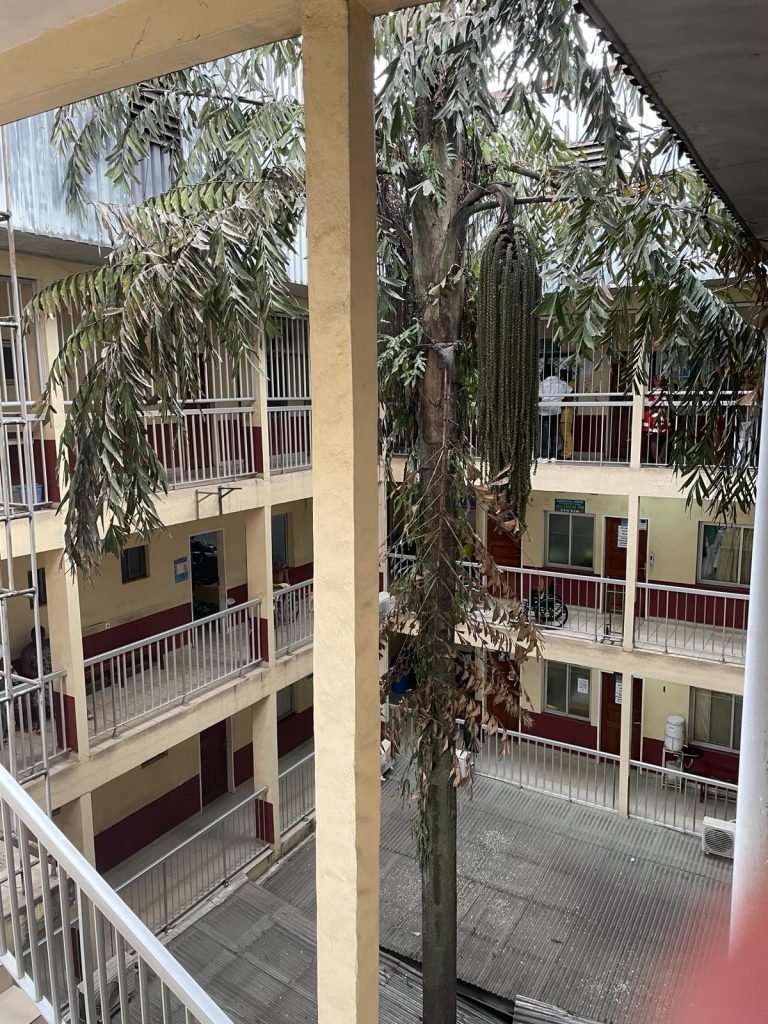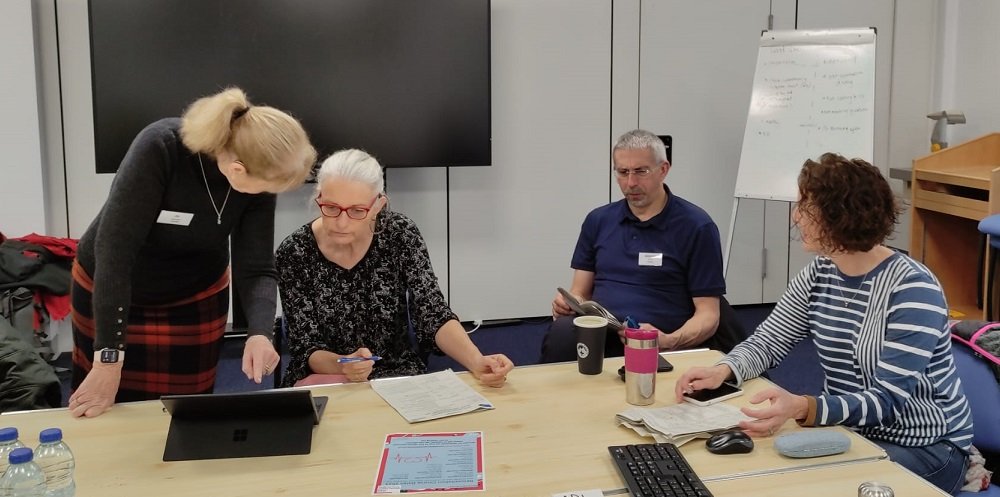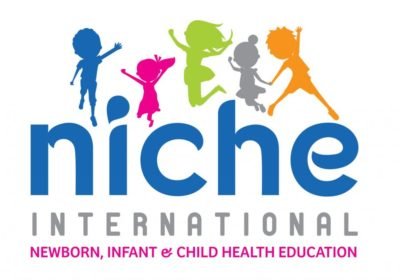Ferenc, the course educator, asked the GIC candidates in Cameroon this week, what they thought made a good instructor:
Instructor Development Programme Graduates

16 healthcare professionals have just completed 2 days of Continuing Professional Development facilitated by 5 UK faculty who are in Cameroon to support the local Neonatal Care Course faculty and train 12 more instructors on the GIC at the end of the week. One of the 16, Ethel (second from the left, back row), is a nurse educator and is shadowing Ferenc, one of the European Resuscitation Council’s senior educators (sixth from the left, back row), and learning how to be a GIC educator.
It was an intense 2 days, mainly of educational updates but we had also been asked for some neonatal clinical updates so the material was interspersed with talks on jaundice, seizure management and CPAP, skills workshops on umbilical venous catheterisation and intraosseous needles as well as an evidence based discussion on the merits and dangers of cooling babies with ischaemic encephalopathy (early brain injury due to being without adequate oxygenation for an extended period around the time of birth) in low- and middle-income countries.
These professionals are the front line workers who will drive change in their health care facilities; they are driven by a need to make things better for new born babies in their country and to reduce neonatal mortality. Training and encouraging them as instructors of the Neonatal Care Course empowers them to initiate new practices at the coal face and hopefully effect long term changes for the good of the families they serve.
Instructor Development Programme (IDP)
Today was the first day of a 2.5 day programme designed to support the on-going professional development of the Cameroonian Instructors who are trainers on the Neonatal Care Course.
These Instructors value time to refresh their skills as trainers, and also to discuss clinical issues in neonatal care. Some have travelled long distances from the North and North West Regions of Cameroon to attend the course.

This year NICHE International Instructors are doing the training in Mboppi Baptist Hospital in the urban centre of Douala. It has been a challenging day, with temperatures of 36 degrees, and variable electricity supply and therefore air conditioning.

We have been enthusiastically welcomed by our Cameroonian colleagues, and continue to be impressed by their dedication and commitment to improving neonatal care in their country.
Cameroon 2024
5 of the European faculty are in Cameroon this week for the second Instructor Development Programme which NICHE International has run here. We arrived 2 days ago – a fairly easy flight from London via Paris for 4 of us based in the UK (see our route map above), a slightly longer trip for our European Resuscitation Council educator who has travelled from deep snow covered north Sweden where the temperature today is -15, to 36 degrees and 80% humidity of Cameroon, via Stockholm and Addis Ababa.
Our journey is of course matched by those of our learners who have come from all over Cameroon to Douala for this course, some of them travelling over 12 hours by bus.
Transitioning to Ugandan instructors

Skills are taught as a 4-stage procedure – silent run through, demonstration with explanation, learners talking instructor through the skill and then all have a go. This imprints the skill on the learners’ minds. Which is why it is very important for the instructor to get it right and be consistent!

There is no piped oxygen in Bwindi Community Hospital. The grey machine on the floor here is an oxygen concentrator. If the ensuing oxygen/air mix is then piped through a bottle of mineral water, the pressure at which it reaches the baby’s nostrils can be increased. Preterm babies’ lungs tend to collapse with each expiration and putting them on this CPAP helps to prevent that.

We use the Global Health Media videos to illustrate much of what we are teaching. They are excellent videos on all aspects of medical care in resource poor areas of the world. Check out the breastfeeding ones which I think we should show more in the UK. Uganda has very high rates of breastfeeding so here we concentrate more on recognition of the sick infant, for which these videos are also very useful. https://globalhealthmedia.org/videos/
And then they could fly….
We’ve just finished Day 1 of the first Neonatal Care Course being taught by Ugandan instructors. All 12 instructors passed the Generic Instructor Course yesterday and rose to the challenge of teaching the NCC today. We are running this course in the chapel. Grace is course directing and made sure everyone knew the ground rules.

It wasn’t long before the newly trained instructors took over from us:


Sad news

We were deeply saddened this week to learn of the sudden death of a young paediatric colleague in Yaoundé, Cameroon. Hildegarde was won of the first Neonatal Course instructors to be trained by NICHE and was one of the team who recently travelled to the far north of the country to teach the first 2 Neonatal Care Courses to health professionals there. She was an enthusiastic trainer and passionate about improving the care of newborn babies in her country.
Our deepest condolences to her family and friends as they prepare to attend her funeral tomorrow. She will be sorely missed.
NICHE team in Bristol, UK

A NICHE team was supposed to be in Uganda at the moment, running the first Generic Instructor Course. The trip has been postponed because of an Ebola outbreak. Jo B-J, head of resuscitation services at Bristol and never one to miss a trick, persuaded 4 of us to go to Bristol instead to teach on the GIC her department was running. It was a great course, well run as always with lots of learning at every level.

It was good to meet the new members of the instructor team face to face. Jo is an experienced educator with the Resuscitation Council and Cath is a neonatal consultant with overseas experience who instructs on a variety of neonatal and paediatric life support courses as well as the generic instructor course. I am very much looking forward to working with both of them at Bwindi – hopefully in February 2023.

First Neonatal Care Course in the Far North Region of Cameroon
Dr Alison Earley

The Far North Region of Cameroon is at the Northern tip of the country, between Nigeria and Chad. Its capital is Maroua, which lies to the East of the Mandara mountains.

This is where Cameroonian Instructors are currently teaching the Neonatal Care course. Two of the instructors did their instructor training in Yaoundé in April this year, when NICHE International volunteers visited to facilitate the course. Other instructors are more experienced and have taught on several Neonatal Care Courses before.

The perinatal mortality is particularly high in this remote region, and the course is much needed. The instructors travelled for 36 hours from Yaoundé, Cameroon’s capital, to reach Maroua where they are training healthcare workers in the Cameroon Baptist Convention Health Services facility. The majority of the health care workers in the Region are French speaking, and the course manual has been translated into French for them.

“They shared their past frustrations and said this course will help them to save many lives“
Grace on the learners’ feedback after course number 1 last night
The European instructors have gone home
THE CAMEROONIAN FACULTY ARE INTO THE LAST STRETCH OF THIS INTENSIVE TRAINING PERIOD WITH THE SECOND NCC BEING DELIVERED NOW
by Grace Ngoran
The second NCC kicked off today with 28 participants in attendance (the 4 extra being the staff who could not make it down to Yaoundé from Bamenda earlier in the week due to concerns around their safety). The excitement was evident as the instructor candidates came up again powerfully with excellent performance. The workshops were really excited particularly the breastfeeding workshop where everyone used the breast models to demonstrate proper latching technique. Participants were observed to be more involved and participatory.

